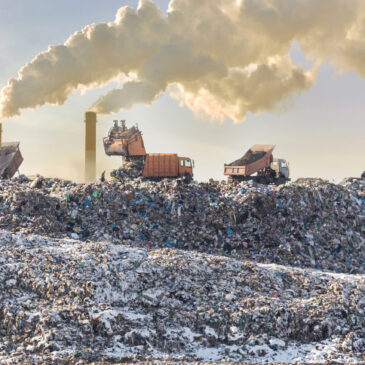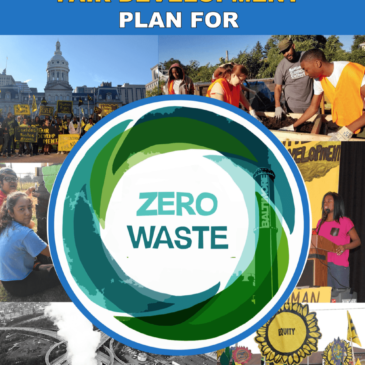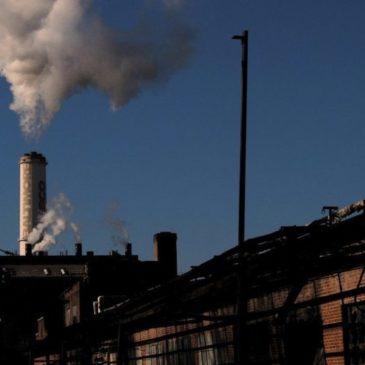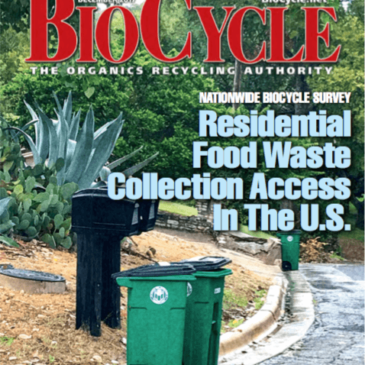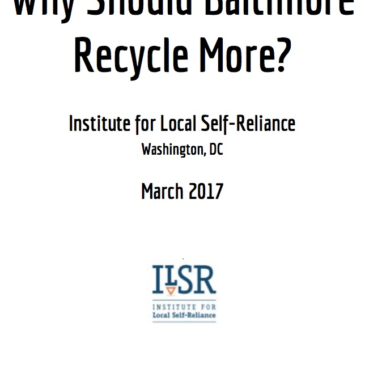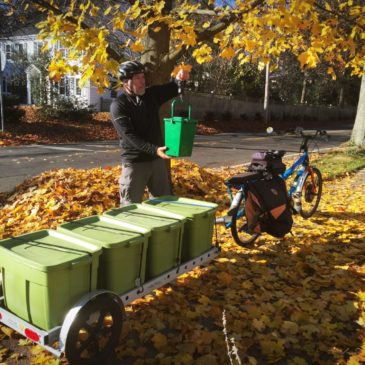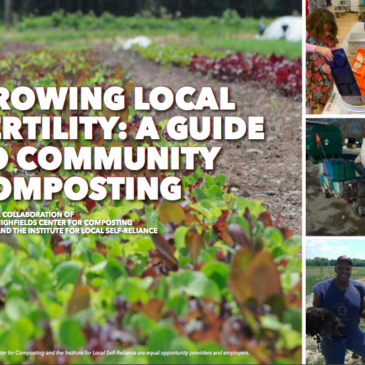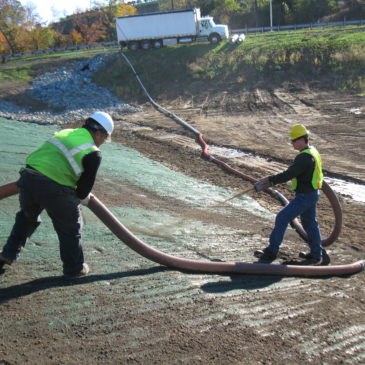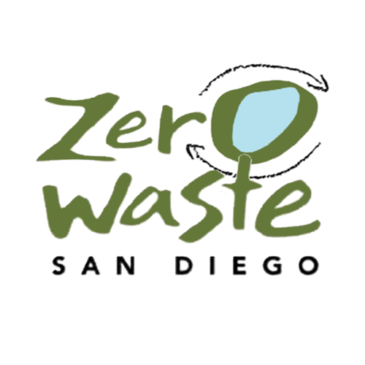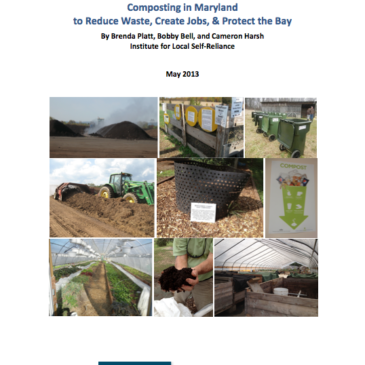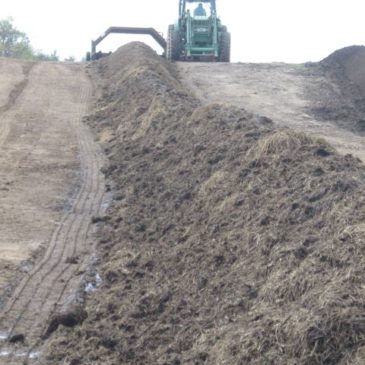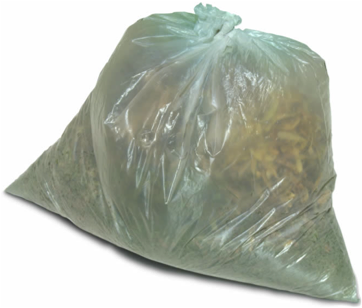Waste to Wealth Resources – Search Results
Return to Waste to Wealth home page
Page 1 of 7
Report Explores Problem of Corporate Concentration in America’s Waste and Recycling Sectors
A report from the Institute for Local Self-Reliance (ILSR) does more than explain the problem of concentrated corporate power in the waste sector — it also explains how we got here, and what we can do about it.… Read More
Our Guide Gives State and Local Leaders Tools to Fight Corporate Monopolies
As state and local leaders grapple with how to create a true recovery — one that lifts wages, fosters small businesses, and rebalances power — combating outsized corporate power is a key strategy. Check out ILSR’s guide to antimonopoly policies for states and cities. … Read More
Report: Baltimore’s Fair Development Plan for Zero Waste
ILSR worked with Zero Waste Associates to co-author Baltimore’s Fair Development Plan for Zero Waste. The plan provides a step by step guide to transitioning the city away from incineration and toward recycling, composting and reuse, which will expand the economy by 1,800 jobs within two years. … Read More
Report: Waste Incineration: A Dirty Secret in How States Define Renewable Energy
Almost half of U.S. states allow energy produced by burning garbage to count toward their renewable energy requirements. In a new report, we unpack why incineration is so problematic and how communities can embrace cleaner alternatives. … Read More
Survey of Residential Food Waste Collection Access in the U.S.
A new report released by BioCycle — with research led by the Institute for Local Self-Reliance — details the growth of residential access to food scrap collection services, both through curbside and drop-off programs. Food scrap recovery is increasingly recognized as a key to reaching high waste diversion levels, protecting the climate, and feeding the soil.… Read More
Report: Why Should Baltimore Recycle More?
There are two primary reasons why Baltimore should invest in more recycling. Establishing high recycling levels will position the city’s residents and businesses for the future, when the costs of incineration and landfill will be more expensive. The city could save citizens and businesses hundreds of millions of dollars by shrinking its waste stream for the next generation.… Read More
Bike-Powered Food Scrap Collection
As part of ILSR’s collaboration with the Chesapeake Youth Development Center to launch a bike-powered food scrap collection service in Curtis Bay, a neighborhood of Baltimore, ILSR interviewed 17 owners and founders of bike-powered collection services in 11 states. Read our article, Bike Powered Food Scraps Collection in the January 2017 issue of BioCycle Magazine. … Read More
Size Matters! New Report Shows The Value of Small-Scale, Community-Based Composting
Composting can take place at many levels – backyard, block, neighborhood, schoolyard, community, on-farm, and regional – and in urban, suburban, and rural areas. Composting at the local level circulates dollars in the community, promotes social inclusion and empowerment, greens neighborhoods, builds healthy soils, supports local food production and food security, embeds a culture of composting … Read More
Composting Builds Healthy Soils and Protects Watersheds, Says New ILSR Report
A new report from the Institute for Local Self-Reliance’s Composting Makes $en$e Project documents the importance of expanded composting and compost use to enhance soils, protect watersheds, reduce waste, and create green jobs and a new made-in-America industrial sector. Building Healthy Soils with Compost to Protect Watersheds This 12-page report highlights the importance of organic matter to … Read More
It’s Not Just San Francisco Anymore! A Report on San Diego’s First Zero Waste Conference
Neil Seldman summarizes presentations from the first San Diego County Zero Waste Conference that was held under the sponsorship of Zero Waste San Diego (ZWSD) and the California Resource Recovery Association (CRRA). … Read More
Composting Supports Jobs and Healthy Watersheds, Say New ILSR Reports
Two new reports from the Institute for Local Self-Reliance’s Composting Makes $en$e Project document the importance of expanded composting and compost use to enhance soils, protect watersheds, reduce waste, and create green jobs and a new made-in-America industrial sector. For press release, click here. With compostable material making up almost one-half of municipal solid waste, there is … Read More
Composting Makes $en$e: Jobs through Composting & Compost Use
Recycling is an economic development tool as well as an environmental tool. Reuse, recycling, and waste reduction offer direct development opportunities for communities. When collected with skill and care, and upgraded with quality in mind, discarded materials are a local resource that can contribute to local revenue, job creation, business expansion, and the local economic base.… Read More
Supportive Rules For Small-Scale Composting
Composting is inherently local; it supports local green jobs, farmers and other businesses. Indeed, farmers have a vital role to play in producing and utilizing compost to restore depleted soils. They also have land, a necessary factor for developing the capacity to compost. State permitting rules can facilitate on-farm and other small-scale operators, thus helping to … Read More
Compostable Plastic Bags: A Glance of What’s Packed in the Bag
Compostable plastic bags are increasingly used to collect food scraps for composting. Their main benefit? Removing the “ick factor” associated with collecting food residuals by keeping collection containers clean and odors at bay, while also breaking down at the composting site. Unfortunately, many plastic bag makers claim that their products are “biodegradable” or environmentally preferable in … Read More
Recycling and Deconstruction Resource Links
These links are useful to anyone interested in advancing composting, recycling or deconstruction.… Read More



